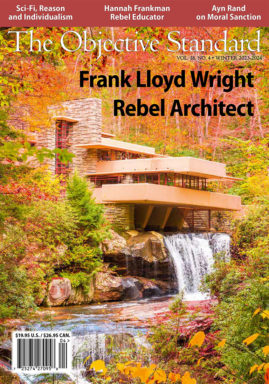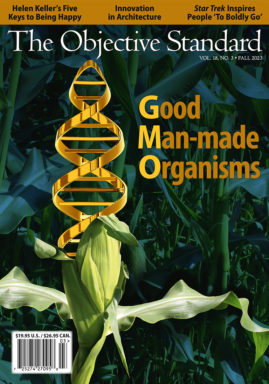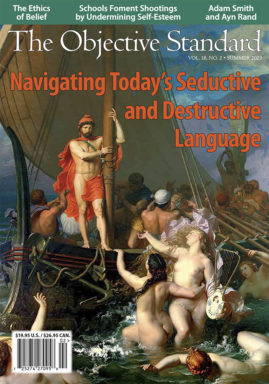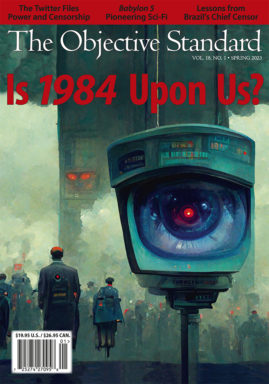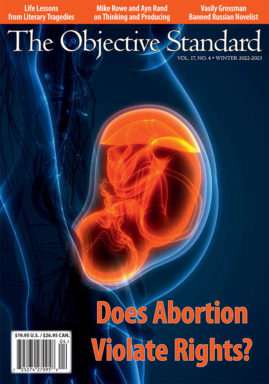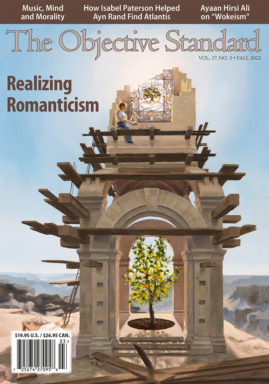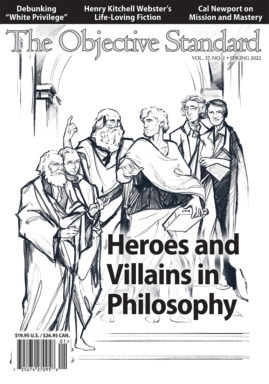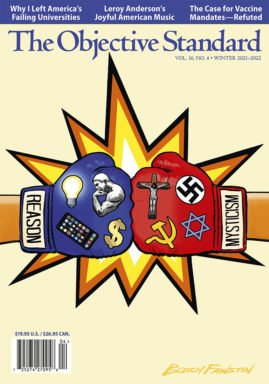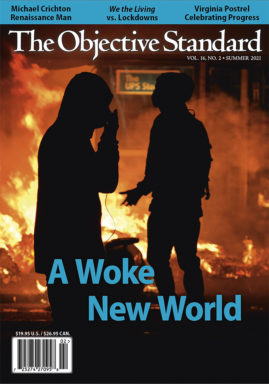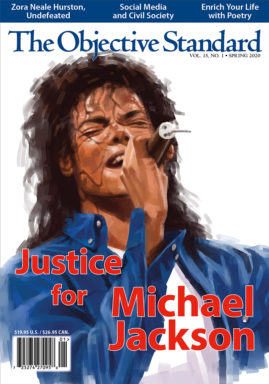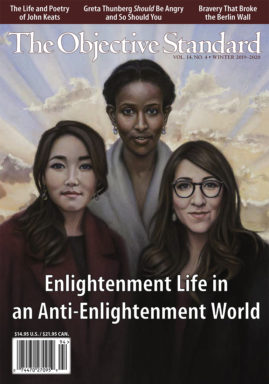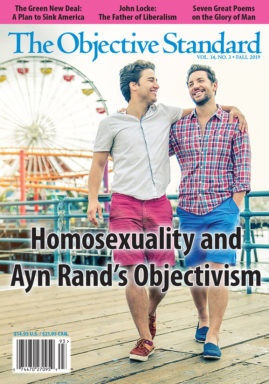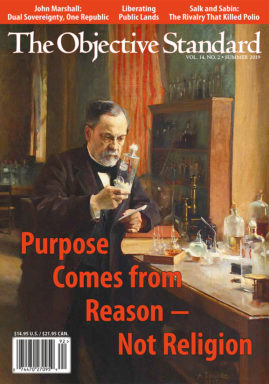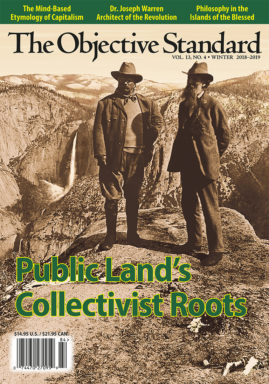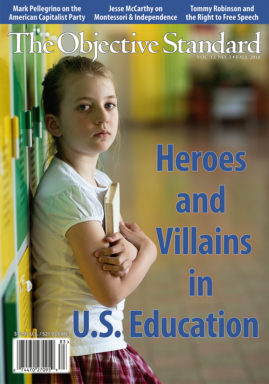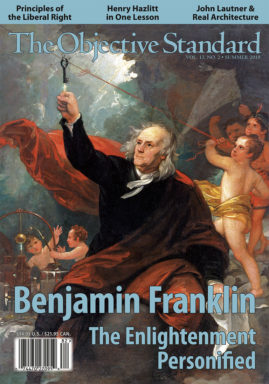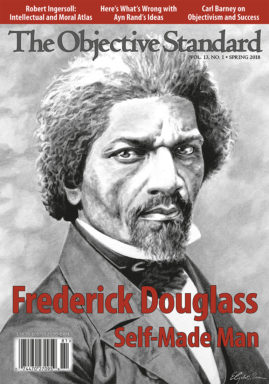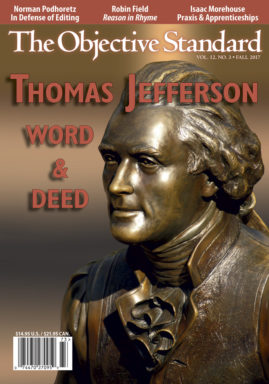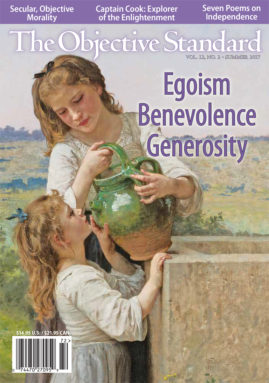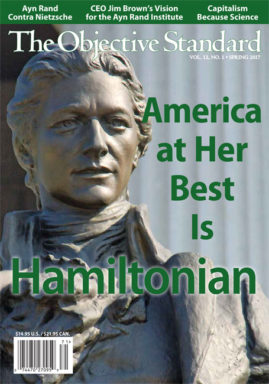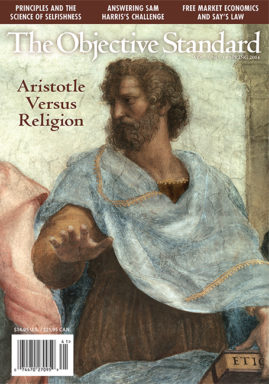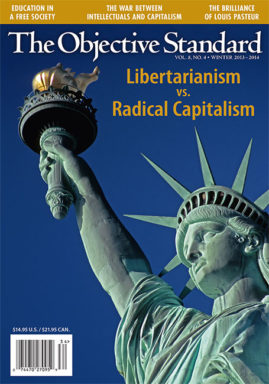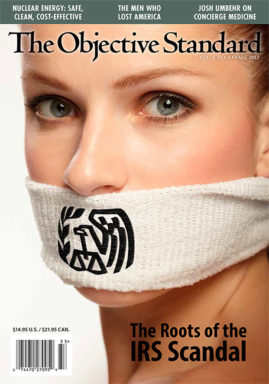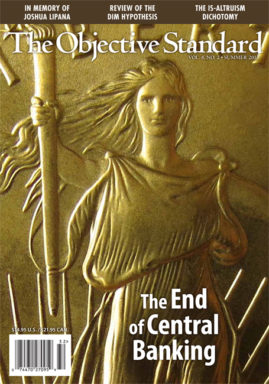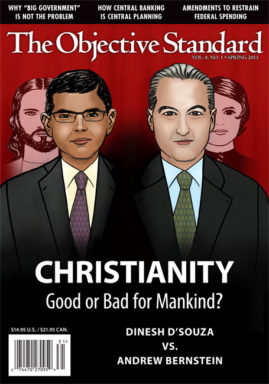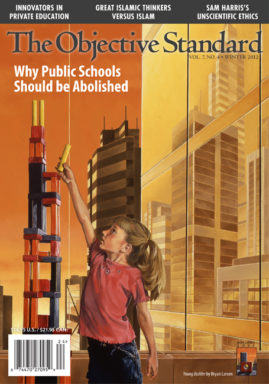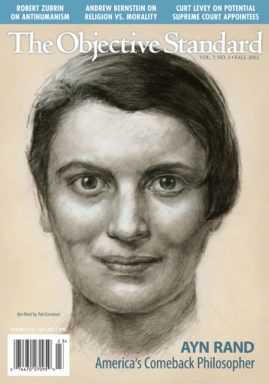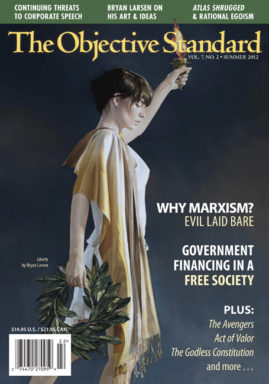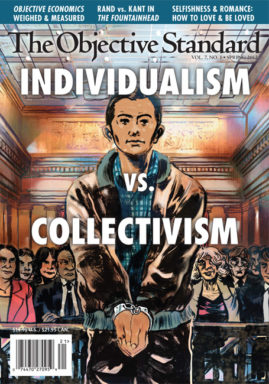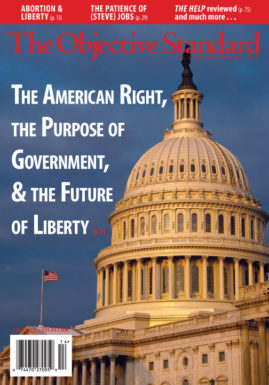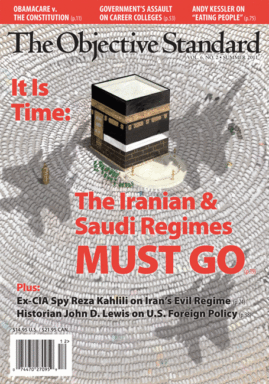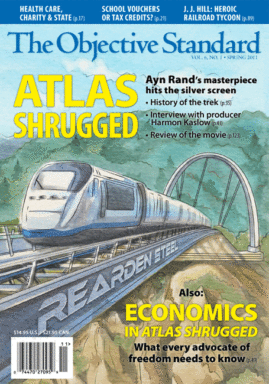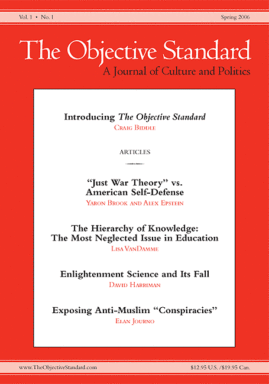Winter 2006 • Vol. 1, No. 4

Features
History, Philosophy
The Tragedy of Theology: How Religion Caused and Extended the Dark Ages
Critiques Rodney Stark’s best-selling book The Victory of Reason: How Christianity Led to Freedom, Capitalism, and Western Success. Bernstein’s analysis proves Stark’s thesis to be historically false and philosophically impossible. The fundamental factor that led to freedom, capitalism, and Western success, Bernstein shows, was not the Christian, scripture-based approach of applying “reason” to the goal of understanding “super-nature,” but rather the Aristotelian, observation-based method of applying reason to the goal of understanding actual nature.
History, Philosophy, Politics & Rights
“No Substitute for Victory”: The Defeat of Islamic Totalitarianism
Consults historical precedent to evaluate America’s response to the attacks of 9/11. Considering key historical attacks against America, along with her responses to those attacks, Lewis highlights the moral and practical issues involved, and draws vital lessons that Americans must grasp and apply in the current war—if we want to win it.
Good Living, Philosophy
The Educational, Psychological, and Philosophical Assault on Self-Esteem
Examines the misconceptions of self-esteem that are widely accepted and propagated by educators and psychologists today, illustrates the philosophical causes of those misconceptions in modern philosophy, and presents the correct view of self-esteem along with its philosophical roots in rational philosophy.
Economics, Politics & Rights, Reviews
Property and Principle: A Review Essay on Bernard H. Siegan’s Economic Liberties and the Constitution
Analyzes Bernard H. Siegan’s Economic Liberties and the Constitution, showing the first edition of the book (not the second edition) to be a valuable source for those seeking to understand how legal protections for property rights in America were gradually lost. Salzman also shows that, although Economic Liberties has certain virtues and is one of the best scholarly books on the subject, it fails to provide a proper philosophical grounding of property rights, and thus cannot stand on its own in defense thereof.
Arts & Culture, Good Living
Mr. Jekyll and Dr. House: The Reason-Emotion Split as Manifested in House, M.D.
Examines the popular television series House, M.D., zeros in on its main flaw—acceptance of the reason-emotion dichotomy and all that it entails—and shows why this potentially excellent show is tragically mixed.




